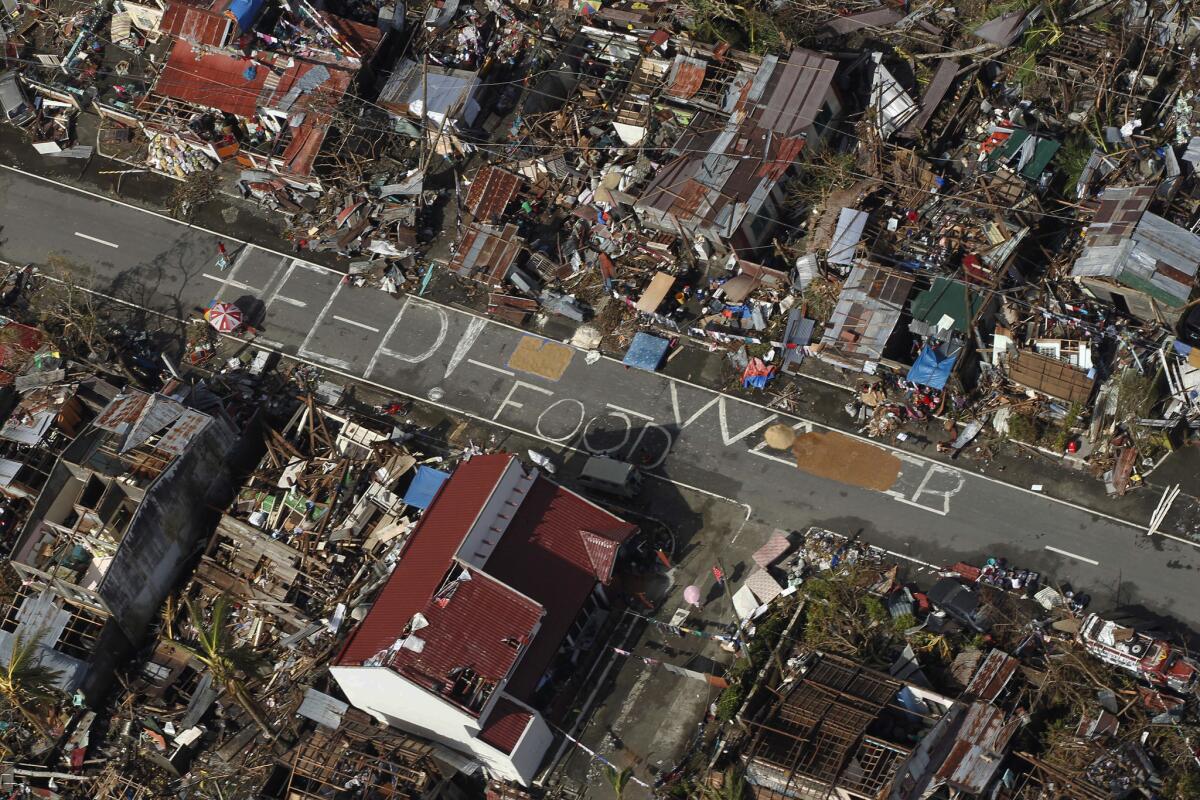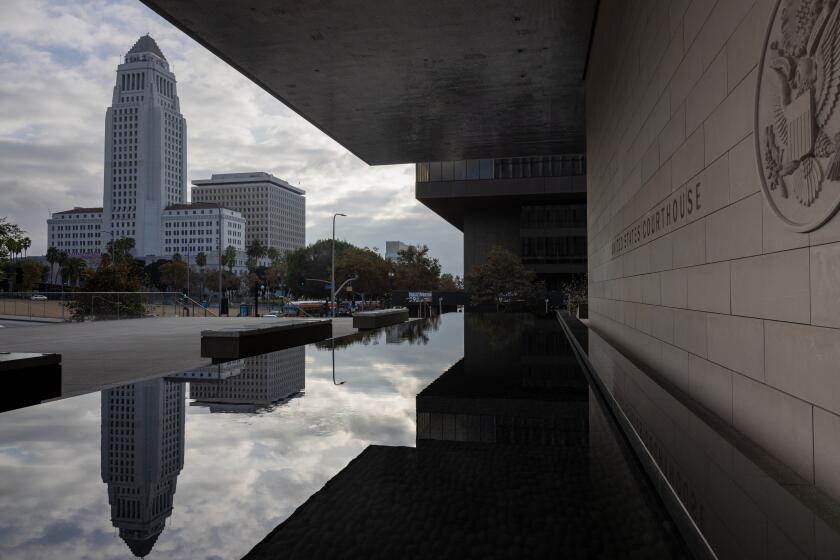Temporary U.S. immigration status urged for Filipinos after typhoon

- Share via
Advocates are putting pressure on the U.S. government to grant temporary refuge to Philippine nationals because of Typhoon Haiyan.
Only Filipinos already in the U.S. would be eligible for temporary protected status, which is granted to foreign nationals following natural disasters or civil wars. Recipients, who would include tourists and students with valid visas as well as Filipinos now in the country illegally, would be allowed to live and work in the U.S. for a designated period.
The Philippine government has yet to formally apply for its citizens to receive TPS, a requirement for the process to begin. Some advocates have urged Philippine President Benigno Aquino III to apply, and 20 U.S. senators have signed a letter asking the Department of Homeland Security to grant TPS to Filipinos.
“It’s meant to help people who are in the U.S. and whose conditions in their home country prevent them from returning safely, or in certain circumstances, where the country is unable to handle the return of its nationals adequately,” said Claire Nicholson, a spokeswoman for U.S. Citizenship and Immigration Services. “It allows them to stay in the U.S. and work until they can safely return home.”
Aquilina Soriano Versoza, executive director of the Pilipino Workers Center of Southern California, estimates that 800,000 to 1 million Filipinos would be eligible for TPS, allowing them to work in the U.S. and send money to areas ravaged by the typhoon that struck the Philippines on Nov. 8.
“We have a country dealing with its own internal refugee situation,” Soriano Versoza said. “Instead of absorbing deported immigrants into its infrastructure, it can focus on its own situation and going from relief to recovery.”
The 2001 earthquake in El Salvador, the 2010 Haitian earthquake and the 1999 hurricane in Honduras and Nicaragua, as well as the Somali civil war that began in 1991, are among the disasters that have triggered TPS. Citizens of those nations have received extensions up to the present, prompting criticism that TPS is not actually temporary.
According to USCIS, about 212,000 Salvadorans, 66,000 Hondurans and 60,000 Haitians, as well as smaller numbers from other countries, are living in the U.S. on temporary protected status.
Roy Beck, president of NumbersUSA, which supports restrictive immigration policies, said the U.S. should provide refuge to people in the immediate aftermath of a disaster. But he opposes the TPS system because of the recurring renewals.
“Great, a hurricane hit the country. Now I get to stay in the country and get a job,” Beck said. “I hate being such a hard-liner, but there’s been no president who honors the system. Who suffers? It’s the American workers who have to compete with hundreds of thousands of people.”
One member of the Pilipino Workers Center has two brothers whose houses were completely destroyed and who have little to eat besides root vegetables, Soriano Versoza said. A temporary work permit would put the woman, who is in the U.S. illegally and works as a caregiver for the elderly, in a better position to help her family.
“In other areas, even though there was not as much death, houses and hospitals are gone,” Soriano Versoza said. “For those families, their No. 1 first line of aid is relatives in other parts of the Philippines and working abroad.”
ALSO:
Sheriff Baca ordered to explain hiring of unqualified officers
Kabbalah Centre misused $1 million in contributions, suits allege
Condition upgraded for boy wounded in Mid-City drive-by shooting
Twitter: @cindychangLA
More to Read
Sign up for Essential California
The most important California stories and recommendations in your inbox every morning.
You may occasionally receive promotional content from the Los Angeles Times.











